Two loan types have become the most popular for the average home buyer: FHA and conventional loans. Interestingly, these two often get confused as being one and the same, and they aren’t, but the difference between them can be confusing.
FHA loans are backed by the Federal Housing Administration, a government organization designed to support homebuyers. FHA loans are available to approved lenders and easily accessible to buyers via banks, credit unions, or mortgage brokers. Conventional loans originated on the primary market but meet the requirements of Freddie Mac and Fannie Mae. These are government-supported organizations that buy loans on the secondary market, thus making it possible for primary lenders to originate more loans for homebuyers. There are some differences between the two that you should be aware of before getting a home loan to know which is the best fit for you.
Credit Score
You are probably aware that you have to have a minimum credit rating to take out any home loan. Conventional loans tend to have higher minimum credit scores, about 620. The minimum credit score for an FHA loan is significantly lower. Buyers can access an FHA loan with a credit score as low as 500.
Interest Rates
Current mortgage rates are still very attractive. Conventional loans interest rates may vary by individual and are influenced by many variables. FHA mortgages are generally a more stable option with lower rates, as they have a lower perceived risk because of their insurance requirements.
Insurance
Conventional loans with less than a 20% down payment will require Private Mortgage Insurance (PMI). This is a premium that either gets paid as a lump sum with closing costs or in addition to the monthly mortgage payments. FHA loans require an upfront PMI payment on top of a monthly PMI. For both FHA loans and conventional loans, the
Restrictions
The type of property a borrower is buying will impact what kind of loan they can access. For example, the property must become the borrower’s primary residence for an FHA loan, not a second home or investment. On the other hand, a conventional loan can be used for primary or secondary homes and investment properties.
Limits
In most counties, FHA loans have lower loan limits than conventional loans. The FHA will have higher limits in areas where home prices are higher. The lowest an FHA loan limit can be is $420,680. Conventional loans also have limitations; however, they are typically higher than FHA loans. Most counties have a conventional loan limit of $647,200.
FHA Streamline
In most cases, FHA Loans will meet the needs of first-time homebuyers and give them the time they need to become better financially established and build up their credit whilst accumulating equity. In addition, the FHA streamline program is another benefit to these buyers. It allows them to refinance faster for lower rates or eliminate their PMI payments.
The best loan for you will depend on your financial circumstances, the type of property you are purchasing, and the area you are purchasing. An experienced mortgage broker will be able to discuss the different products available and guide you to what suits you best.




